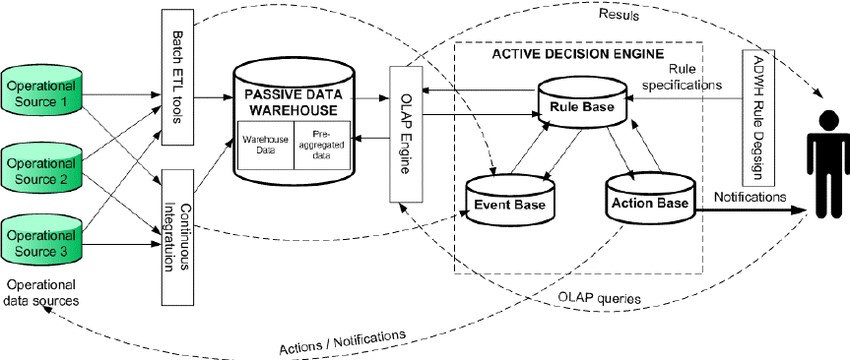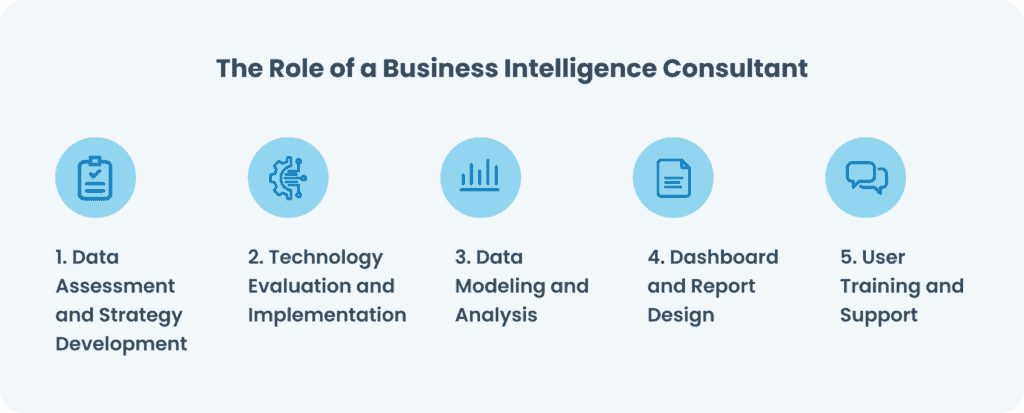It is clear that the retail sector has now become driven by a data-driven decision-making approach, and store management systems are at the core of this drive. Those retailers who can leverage such systems can gain a real competitive advantage through accessing better quality data insight, which in turn leads to improved store operations, increased customer satisfaction, and enhanced profitability. Combining retail management with data analytics enables businesses to make more intelligent, quicker decisions for driving long-term success.
The following article will explore in depth how insights powered through store management systems for data-driven decision-making allow retailers to optimize their operations and make relevant decisions with a positive impact on performance. Data influences key strategic decisions in retail, from improving customer experience to operational efficiency.
The power of store management systems in data-driven retail
Store management systems provide retailers with a holistic view of their operations by collecting data across various aspects of the store, from inventory and sales to customer interactions and employee performance. By leveraging retail analytics for store management, retailers can unlock insights that are pivotal to decision-making.
Real-time data for agile decisions
Real-time collection of data is one of the prime features of modern store management systems. These systems, therefore, avail instant insights related to the performance and customer behavior at stores with urgency, which can be acted upon by retailers to make quick changes to any changing conditions.

- Inventory management: Through a store management system, a retailer can track their inventory in real-time and avoid overstocking or stockouts. If the business has the right data on which items are running low, then it can reorder such items before they are completely depleted of stock. In this way, popular items will be available for the customers at any given time. On the contrary, products that are not in demand can be analyzed and the company can either run promotions or simply phase them out of their product line.
- Sales Performance: Real-time visibility into sales trends means store managers can quickly implement price, discount, and marketing changes. If there are certain products that are selling particularly hot, for example, then managers can maximize demand with special, limited-time promotions or feature the product in promotional ads.
Business intelligence for smarter decisions
Business intelligence tools are integral parts of store management systems, enabling the translation of raw data into meaningful insights. These will help in driving optimized solutions for in-store functions like inventory, staffing, and customer engagement.
- Customer insights: Analyzing customer behavior data will allow the retailer to get a better view of his audience and enable more focused marketing toward target customer segments. By tracking consumer purchasing trends, retailers could suggest related products or offers to their customers. This can lead to an increase in the number of loyal customers and sales.
- Staff optimization: Data-driven decision-making enables retailing to optimize its staff. For instance, analyzing foot traffic and sales patterns will ensure that store managers align staffing levels with peak shopping hours. Therefore, this improves the customer’s experience and avoids wasting money on redundant labor costs.
Improving operational efficiency with data insights
Management systems of stores assist retailers in refining not only customer-facing areas but also streamlining internal operations. Data-driven insights about store performance enable the manager to make informed decisions for efficiency enhancement and waste reduction.
- Supply chain optimization: The supply chain operations can be optimized using data-driven retail strategies. For example, store managers could forecast demand by using historic trends and hence maintain proper product availability without excess inventory and stockouts.
- In-store experience: Data will also be helpful to retail managers in fully leveraging the in-store experience. By monitoring customer movement inside the store and interaction with displays, retailers will be able to make changes in the store layout, making products more reachable and, hence, driving sales. With data-driven insights, it is possible to ensure better product placement, putting high-margin or popular products in the most reachable locations in the store.
Actionable insights for business growth
Besides smooth store operations, a store management system also provides many valuable suggestions that contribute toward the long-term growth of your business. Through proper analysis, comprehensive data allows retailers to notice new opportunities, engage customers more effectively, and improve their marketing.
- KPI monitoring: Through store management systems, every KPI is tracked to give a crystal-clear view of performance within the stores. Other metrics like sales per square foot, conversion rates, and average transaction value could also be used by store managers to find out if any strategy is working correctly or not. Such analyses further create ways for continuous optimization, which ensures that the store becomes competitive and efficient.
- Profitability analysis: Using data-driven insights, determinants for the most profitable products or categories can be identified. This would enable the store manager to know which inventory level, price setting, and promotional activities to make informed decisions. This, in turn, enables the retailer to invest more in high-margin products and less in low-margin products.
How data analytics enhances retail store management
Data analytics in retail is essential for refining operations, enhancing customer experiences, and increasing profitability. Through the use of advanced analytics tools, store management systems provide deeper insights into how to optimize every facet of the retail business.
Customer-centric decision making
The analytics integrated into the store management systems can enable retailers to adopt a more customer-centric approach toward decision-making. By collecting data on customer behavior, preference, and purchase history, retailers will be able to create personalized experiences that increase customer loyalty.
- Personalized marketing: Marketing campaigns can be targeted for each customer by analyzing transaction history. For example, offering discounts on the products a particular customer buys very frequently or suggesting supplementary items about the products they have bought will add value to customer service and help boost sales.
- Loyalty Programs: The insights from data also enhance loyalty programs. With a deep understanding of customer preferences and behaviors, retailers will develop more engaging loyalty programs that offer personalized rewards for better customer retention and lifetime value.
Leveraging business intelligence for smarter management
The store management systems come with integrated business intelligence tools that facilitate large volumes of data analysis for retailers and arrive at more valid data-driven decisions.

- Predictive analytics: Given the historical trends in sales, a retailer can go ahead and predict the future sales demand for certain products. By predicting increases in demand, managers in stores can adjust the levels of their inventory and plan for seasonal change, ensuring that their store is always ready for the next wave of trends.
- Automation of decision making: Advanced store management systems come equipped with various AI-powered tools that automate decision-making procedures. For instance, it may automatically alter the prices of products based on the pricing strategy of competitors, weather patterns, or customer demand. It saves the time of store managers while their pricing strategy is going to be more accurate.
Optimizing store operations
Identification of several ways through which the store management system streamlines operations so that resources are put to effective and efficient use.
- Labor optimization: Past sales and traffic data help managers schedule optimum numbers of employees to work during busy periods, in order for the customers to be serviced as quickly as possible with minimum cost of labor.
- Efficient inventory management: Data-driven insights enable more accurate demand forecasting, reduce stock overstocking, and ensure the availability of products at all times for customers. This results in higher customer satisfaction with reduced inv
Conclusion
It changes the way retail decisions are made. Data insight store management systems enable retailers to make smarter, faster decisions that will continually optimize store performance, enhance the customers’ experience, and boost profitability. By harnessing retail analytics and business intelligence, retailers can optimize their inventory, improve staffing, and create personalized experiences that foster long-term loyalty.
The betterment of the retail industry will continue to depend partly on how data-driven retail strategies are considered and applied, indicating the level of success. Retailers who will be open to embracing such technologies shall always remain well-placed to address competitive marketplaces, ensure growth, and build better relationships with their customers.





Leave a Comment